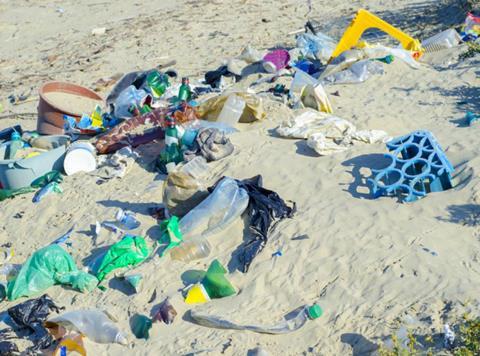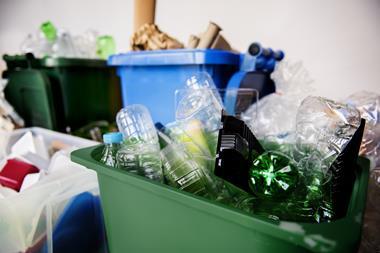
The Chancellor has been told she could generate £100m a year in extra tax revenues from a major increase in the industry’s plastic packaging tax, The Grocer can reveal.
A new report by Hybrid Economists, commissioned by waste services giant Biffa, urges Rachel Reeves to overhaul the tax while phasing out the export of unprocessed plastic packaging waste to other countries.
The report comes after The Grocer revealed last week that Reeves is said to be looking at a hike in the tax as one of the ways to fill the government’s fiscal black hole.
It says that by bringing in an escalator so the tax would rise to cover any items that contained less than 50% of recycled plastic, the Treasury could ensure a major injection of tax funds. It would also help to spark private investment to create circular economy jobs in the UK, the report added.
Call to invest in UK recycling
The report calls on Westminster to end what has been described as the “international scandal” of sending waste abroad by pumping money into facilities in the UK. It also wants to stamp out the tsunami of cheaper virgin plastic imported into the country by introducing tough new third party verification demands to prove material is recycled.
Economists behind the report claim that when combined with existing capacity, the government could help support over 9,000 roles across the UK and generate almost £900m of economic value every year, while delivering at least £100m of new tax revenues annually.
A rethink of the PPT is at the heart of the report, which stresses the government would not need to contribute a penny to the investment and operation of the new facilities,
The report calls for an end to all exports of unprocessed plastic packaging waste by 2030. The country currently recycles only half of its plastic packaging waste, with the remainder sent for export, much of it never recycled.
Hybrid Economics warns that an increasing number of countries are rejecting imports of unprocessed waste, raising concerns that the UK could be left with rising volumes of plastic it lacks the capacity to recycle.
Yet the report concludes that with the right market incentives, the UK could build up to 15 new world-class recycling facilities.
“By exporting the unprocessed plastic waste it produces, the UK evades its responsibility to deal with its own waste,” says the report.
“Increasing the UK’s domestic recycling capacity would generate substantial private investment, boost GDP, and create thousands of secure, well-paid jobs.
“Delivering this boost to the economy does not require a single penny from the government. But it needs the government to provide the right incentives to attract private investment and ensure that the plastic waste currently sent abroad is recycled in the UK.”
Economic benefits
The report calls on the Chancellor to bring in a portfolio of policy measures including introducing an escalator, similar to that previously introduced on the landfill tax, increasing the threshold for recycled plastic up to 50%.
It would also require third party certification on imported recycled plastic, certification of food contact materials and the phasing out of exports of unprocessed plastic packaging waste.
The facilities needed in the UK would be roughly equivalent to 15 new facilities similar to Biffa’s recycling facility in Redcar. Once they were up and running could directly employ more than 2,700 full-time employees, the report concludes, with over 5,400 full-time jobs created in total as a result of the investment, a boost to the economy of £540m every year.
“When the right conditions are in place, UK recycling grows, investment follows and the environmental and economic benefits build year after year,” said Biffa Polymers MD James McLeary.
“The research we are publishing today sets out how the UK can replicate that success across all plastic packaging and take responsibility for processing its own waste onshore.
“Hybrid Economics sets out a portfolio of policy measures that could unlock the required private investment, including a strengthened plastic packaging tax trajectory, certification of imported recycled plastic and the phased end of exporting unprocessed plastic packaging waste.”
Hybrid Economics partner Neville Hill added: “The UK has built a strong plastic recycling sector over the past 15 years, but it is only using half of its potential. Ending exports of unprocessed plastic packaging waste by 2030 would allow the UK to take control of its environmental responsibilities and seize a clear economic opportunity. Our analysis shows the sector can expand significantly with no call on public funds, provided government sets the right framework.”



















No comments yet